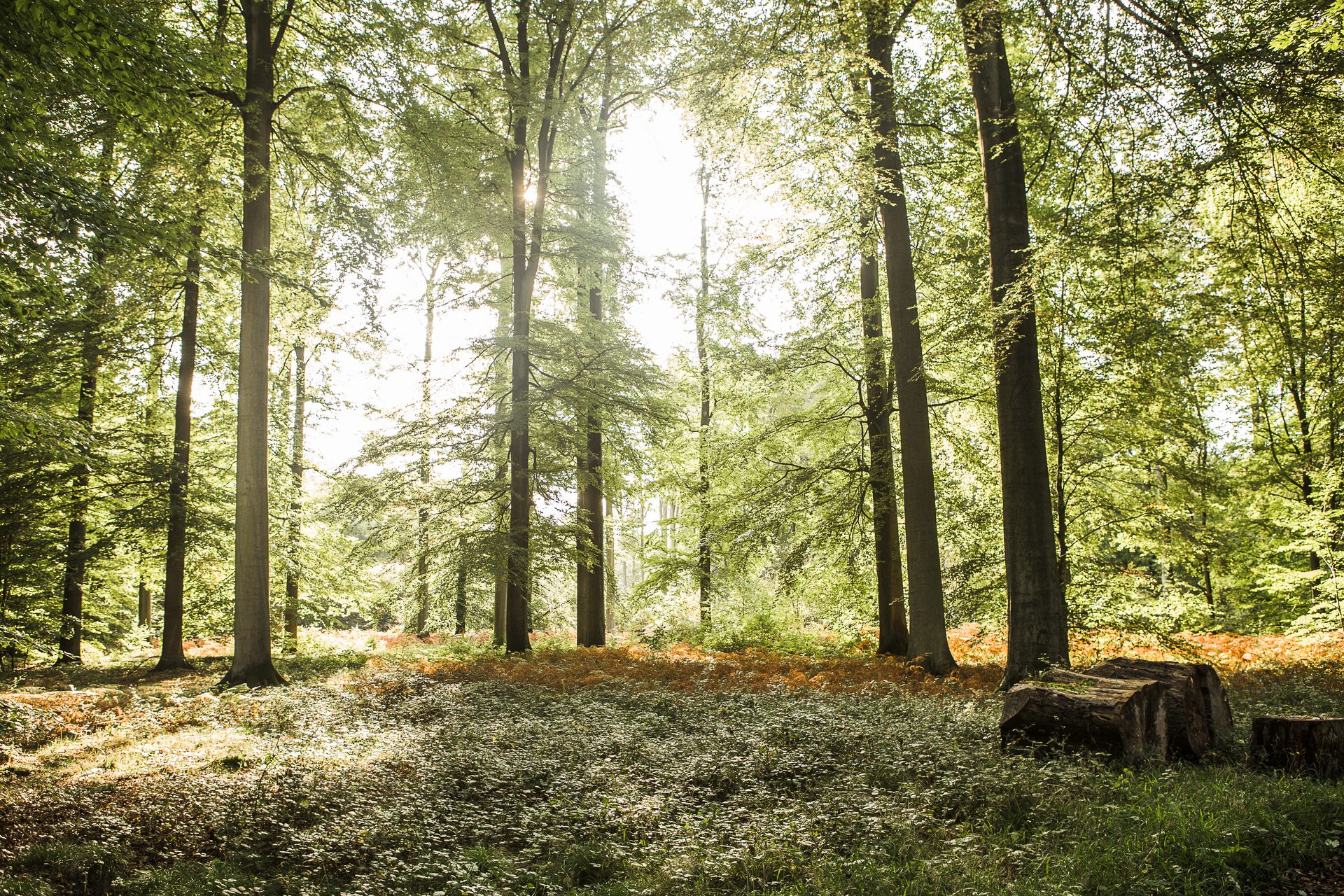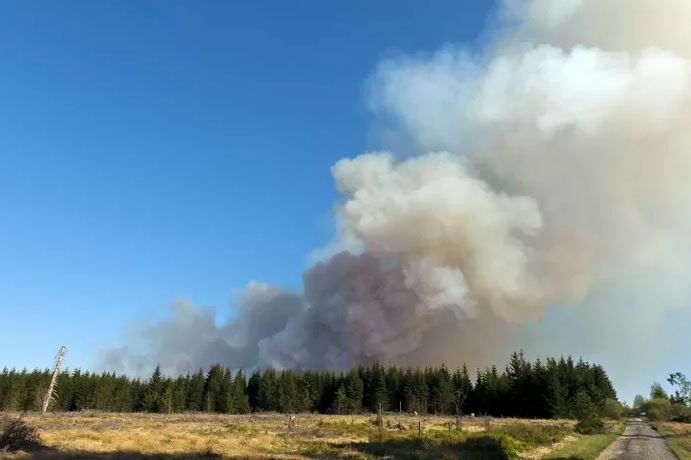Despite temperatures earlier this summer surpassing records in Belgium, northern Europe has thus far avoided wildfires such as those rampaging across countries like Greece, Italy and Spain. In fact, July had the highest number of rainy days in the past 35 years.
But in an interview with Het Laatste Nieuws, celebrated Belgian meteorologist Jill Peeters (aka "the weather woman") alarmed readers with a stark warning about the Sonian Forest.
When questioned about whether nations like Belgium should also fear extreme forest fires such as those in southern Europe, the meteorologist said that she is concerned about this and highlighted the Sonian Forest, which she said "has already been weakened by the roads that run through it and the houses that are there."
The meteorologist hinted at a lack of proper management in the region, something that Patrick Huvenne – regional manager for the Agency for Nature and Forests in Flanders – played down. He argued that although long periods of heat increase the risk of wildfires, the chances of similar emergencies as seen around the Mediterranean happening this summer in Belgium is very low.

Sonian Forest. Credit: Belga/ Siska Gremmelprez
An ecosystem's resilience
Highlighting the particularity of Belgium's nature, Huvenne explained that a forest's resilience to wildfires is based on soil and vegetation. Evidently, the more moisture in both, the lower the chance of forest fires. To this end, the Sonian Forest does not give immediate cause for concern.
It stands on loamy soil composed of clay and finer particles that retain water for longer periods. The vegetation of broadleaf forests can also capture moisture thanks to its complex and lively flora, in contrast to woods with large expanses of less diverse foliage. This has considerably lowered the temperature of the forest, which at times is 10 °C less than in the centre of Brussels.
Huvenne questioned Peeters' singling out of the Sonian Forest when there are others in Belgium that are much more vulnerable to fires –notably in the Campine region northeast of Flanders: needlewood forests with dry, sandy soil and a lack of diversity in the vegetation.
Responsible forest management
The natural resilience of the Sonian Forest is reinforced by successful forest management practices over the last decades. Nonetheless, Huvenne says that extremely dry summers in the past five years have been a wake-up call for Belgian forest management agencies, who are now more prepared than ever to handle wildfires.
Agencies follow weather forecasts closely and use a colour-coded system to assess the wildfire risk level on any given day to determine whether or not to man the watchtowers throughout the forest. Additionally, they are in close contact with fire brigades who have recently started training more specifically on handling fires in nature.

Credit: Belga / Mine Daelemans
But the region is also looking towards the future. "We are really aware of the dangers expected for the upcoming years," Huvenne said. "We're trying to strengthen our forests against climate change: both the direct risks to the trees but also indirect risks like floods and forest fires."
Efforts include cutting and planting trees adapted to the future conditions of the soil, climate and biology to ensure greater diversity in species and ages.
A common ecological vision
Their efforts are particularly unique in the Sonian Forest because it is the only nature domain in Belgium managed by three different regions. Several forest management authorities work collectively towards a common vision for the ecosystem and tourism.
"The Sonian Forest is a good example where three regions work closely together on an interregional forest," said David Kuborn, director of the Sonian Forest Foundation.
Related News
- Belgium reactivates 1722 number due to risk of storm or flooding
- Brussels firefighters win gold medals at World Police & Fire Games
"I have the impression that it works quite well," Huvenne agreed, adding that "the remark of Mrs Peeters on the Sonian Forest was a bit strange."
In other words, the risk of wildfires in the Sonian Forest is low thanks to its natural resilience and the hard work of well-organized forest management systems.

